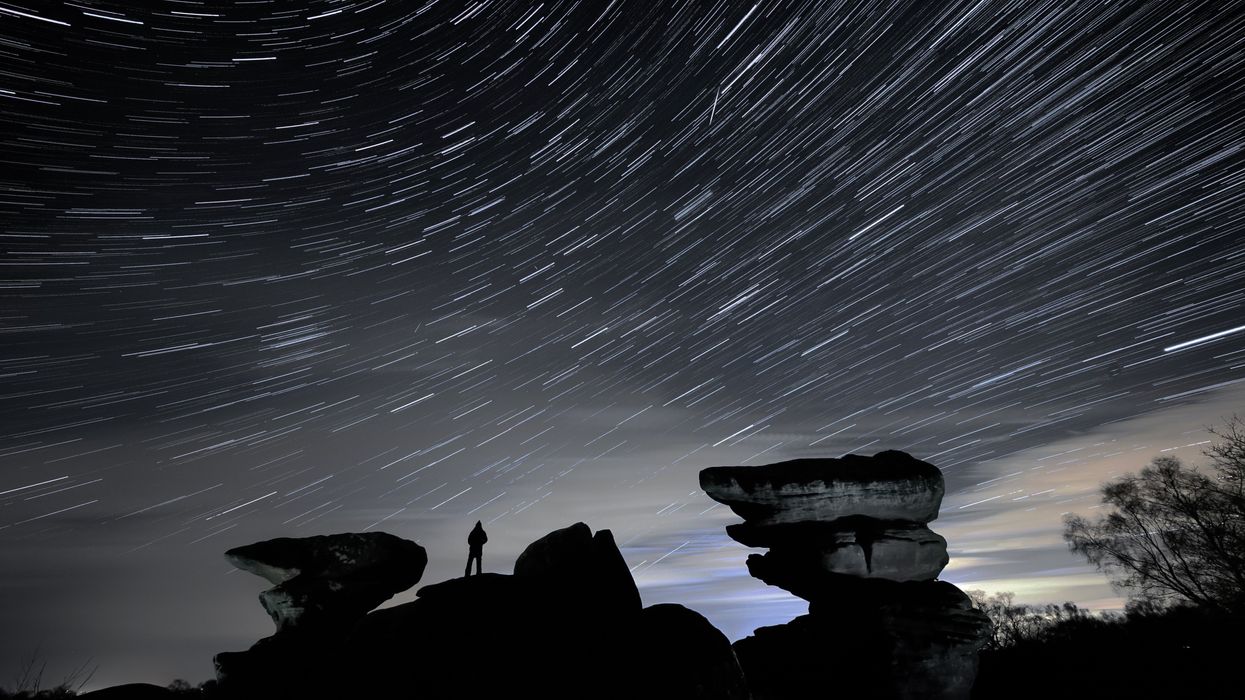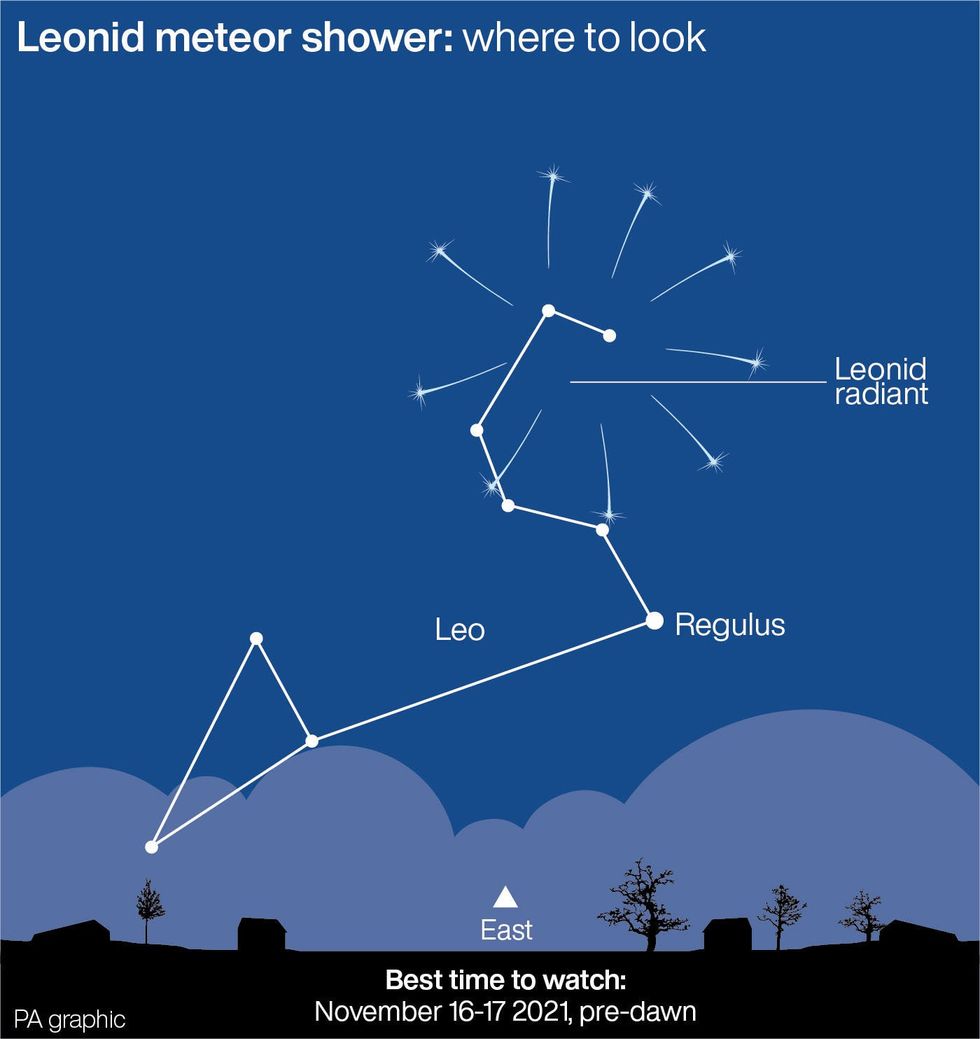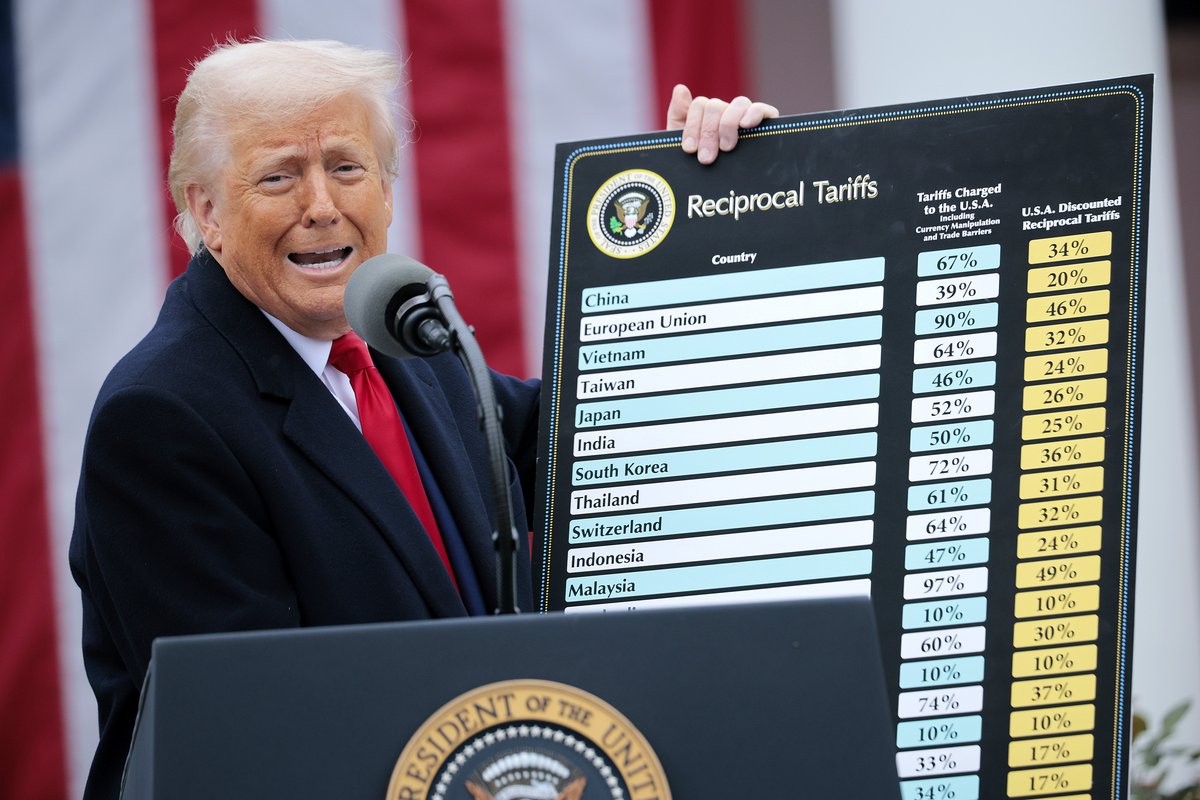
Skygazers may catch a glimpse of a shooting star display as the annual Leonid meteor shower lights up the skies above Britain
This year the best time to see the spectacular will be pre-dawn on Wednesday night.
The Leonids, usually fast, bright meteors, are associated with Comet Tempel-Tuttle.
The point where they appear to stream from is at the head of the constellation Leo the Lion, hence the name.
A tiny path of debris is left by the comet as it follows its path around the sun, and this enters Earth’s atmosphere at speeds of up to 70 kilometres per second, vaporising and causing the streaks of light we call meteors.
They can be seen with the naked eye, and are best viewed with clear skies away from light pollution.
Those who miss the peak on Wednesday night might still be able to view the shower, as it continues at a reduced rate for several days on either side.
Displays are better when the Tempel-Tuttle comet, which takes 33 years to orbit the sun, is closer to the Earth, an occurrence which is next due in about 15 years’ time.
The Met Office forecast for Wednesday to Friday is for changeable weather in the north with spells of rain or showers and often windy.
It says it will be largely dry in the south with variable cloud.













